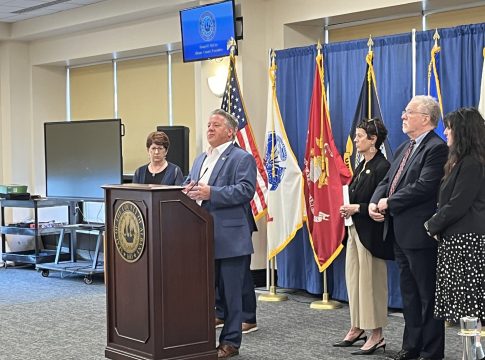Addressing Mental Health Needs Among Homeless Residents: A New Program in Albany County
In a thoughtful response to the growing mental health and homelessness crisis exacerbated by the COVID-19 pandemic, Albany County has announced an innovative street psychiatry program aimed at supporting its homeless population. This initiative, led by County Executive Dan McCoy, reflects a compassionate understanding of the barriers that vulnerable individuals often face in accessing mental health services.
Understanding the Need
The recent surge in homelessness—from 676 individuals in 2020 to 857 in 2024—highlights an urgent need for effective interventions. Many individuals living in precarious situations can struggle to connect with traditional healthcare systems, resulting in a cycle of instability that can severely impact mental well-being. McCoy emphasizes that "we cannot address the homeless crisis without addressing the mental health crisis." This acknowledgment lays the groundwork for a more integrated approach to support.
What Is the Street Psychiatry Program?
This pilot program aims to meet individuals where they are—quite literally. A dedicated team will engage with homeless residents in public spaces to provide immediate assessments of both mental health and housing needs. The team comprises various professionals, including:
- A nurse
- A mental health clinician
- A case manager
- A mental health care advocate
- A substance abuse counselor
- A supervising clinician
Immediate Care and Ongoing Support
One of the program’s critical features is the ability to provide prescriptions on the spot. McCoy explained that “we’re going to give them their prescription right there, right on the street to go get filled.” This immediate access is crucial for individuals who might otherwise fail to follow up with healthcare appointments or prescription refills.
Additionally, the program acknowledges the interconnectedness of mental health and housing needs. Each interaction includes an evaluation of what individuals may require to navigate their living situations more effectively, fostering an environment where comprehensive support becomes possible.
Collaboration with Law Enforcement
Recognizing the complexities surrounding public safety and mental health, Albany’s police department is also actively involved in this initiative. Police Chief Brendan Cox notes that while crime rates have dropped, the community continues to express concerns about safety related to those experiencing mental health crises on the streets.
To enhance community well-being, residents who suspect someone may be in crisis can reach out to a non-emergency dispatch line. Trained dispatchers will help determine whether a police officer or a crisis case worker is best suited to respond, further ensuring that support is more targeted and effective.
The Broader Impact
This new approach not only aims to enhance public health but also seeks to foster a more compassionate community response. As we collectively recognize the mental health challenges our society faces, it’s vital to understand that support should be accessible to everyone, particularly for those living in the margins.
By prioritizing the mental health needs of homeless residents, Albany County is taking significant steps toward healing and empowerment. As McCoy eloquently put it, “We’ve talked about this. It’s a different world we’re living in since COVID.” The program embodies a hopeful vision for a future where mental health care and housing support are intertwined, ultimately leading to healthier individuals and a safer community for all.
In closing, initiatives like this remind us of the importance of empathy and community-focused solutions in addressing complex social issues. For those experiencing similar challenges in other areas, seeking local resources, advocating for systemic changes, and fostering open dialogues about mental health can spark meaningful progress.

Covers wellness, nutrition, mental health, and daily life tips.
Bio: Talia brings a background in health journalism and holistic living to help readers live better, one tip at a time.

